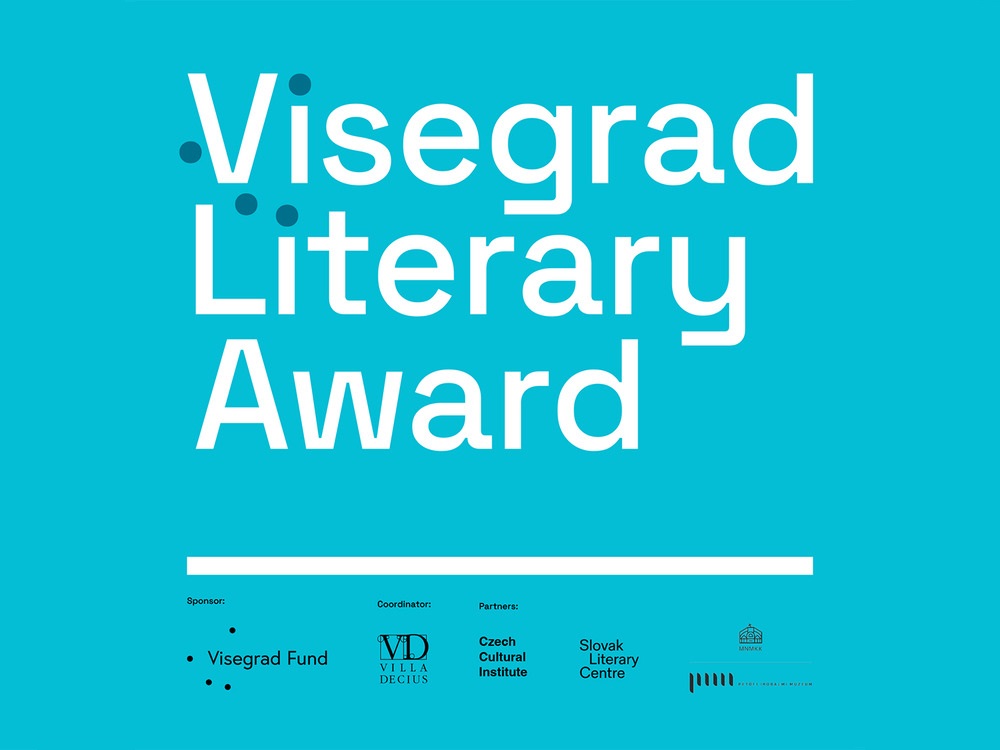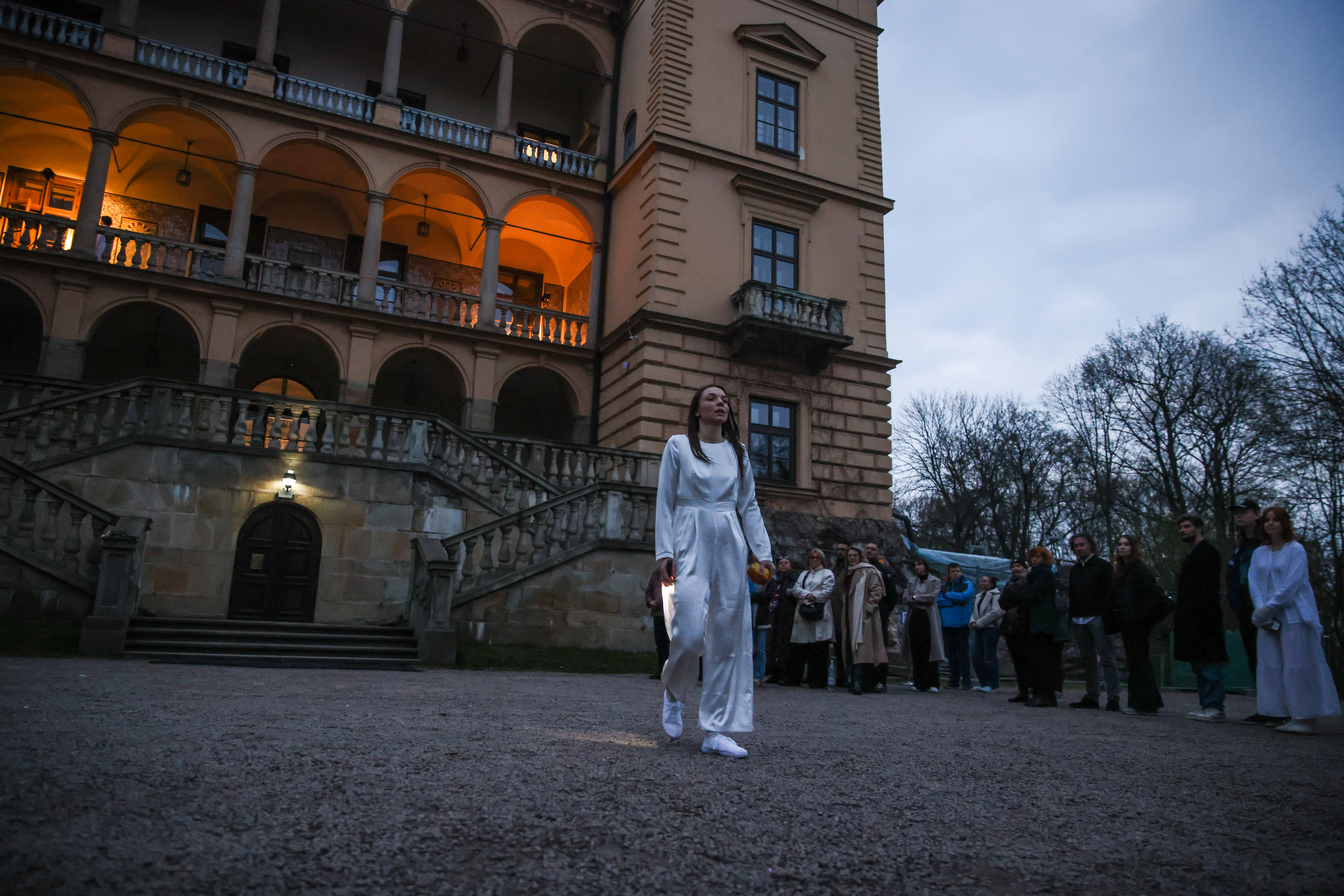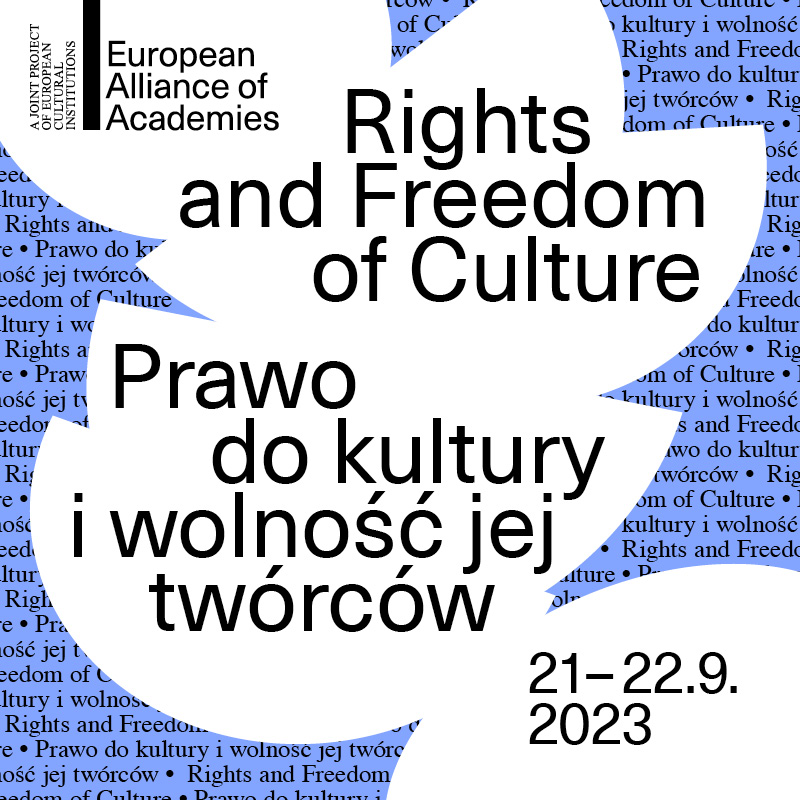Literary Centre of Europe’ is a series of events taking place as part of the Visegrad Literary Residencies, a scholarship programme for writers from the Czech Republic, Poland, Slovakia and Hungary, run by the Villa Decius Association.
On Friday, 22 November at 6.00 p.m., we would like to invite you to a meeting with the scholarship holders of the autumn edition of this year’s Visegrad Literary Residencies: Olga Gorska (Poland) Róbert Gál (Czech Republic), András Gerevich (Hungary) and Marošen Volovár (Slovakia), who will talk about their work and read their works.
Moderation: Paweł Łyżwiński
The event will be held in Polish and English; all works will be read in their original languages and in Polish translation.
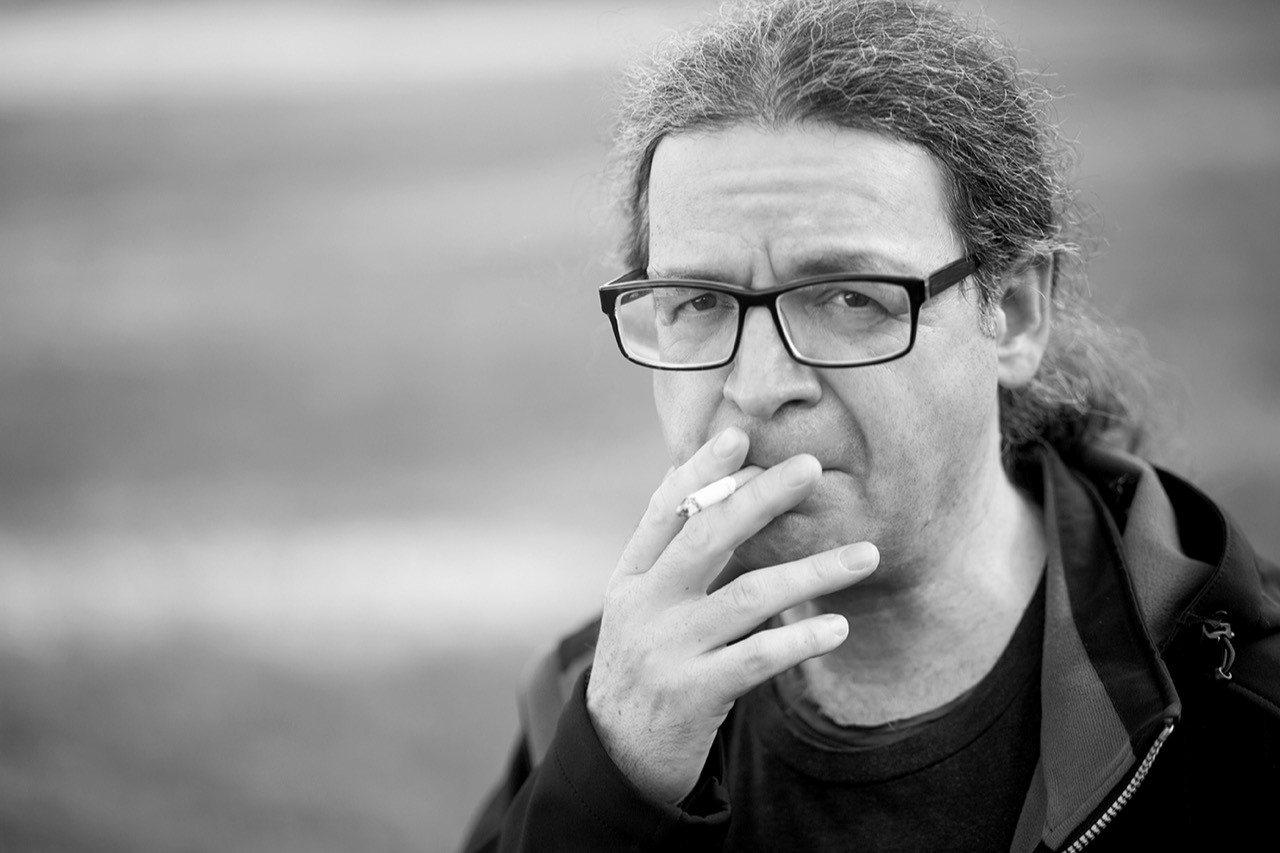 Róbert Gál – the enfant terrible of Slovak literature, has already devoted several decades to, in the main, the philosophical aphorism. From the aphorism he has made some adventurous excursions into other genres: prose, essay and poems in prose.
Róbert Gál – the enfant terrible of Slovak literature, has already devoted several decades to, in the main, the philosophical aphorism. From the aphorism he has made some adventurous excursions into other genres: prose, essay and poems in prose.
His latest book, ‘Traktát’ (Tractatus) – a Wittgenstein-inspired treatise, written in numbered aphorisms – has been published in four different countries (Slovakia, UK, Czech Republic and Turkey), and its English translation was a finalist for the 2022 Big Other Book Award in New York. Róbert Gál lives in Prague, Czech Republic, and has been a Czech citizen since 1991.
📚 During his autumn stay at Villa Decius within the Visegrad Literary Residences he will be working on another collection of philosophical aphorisms.
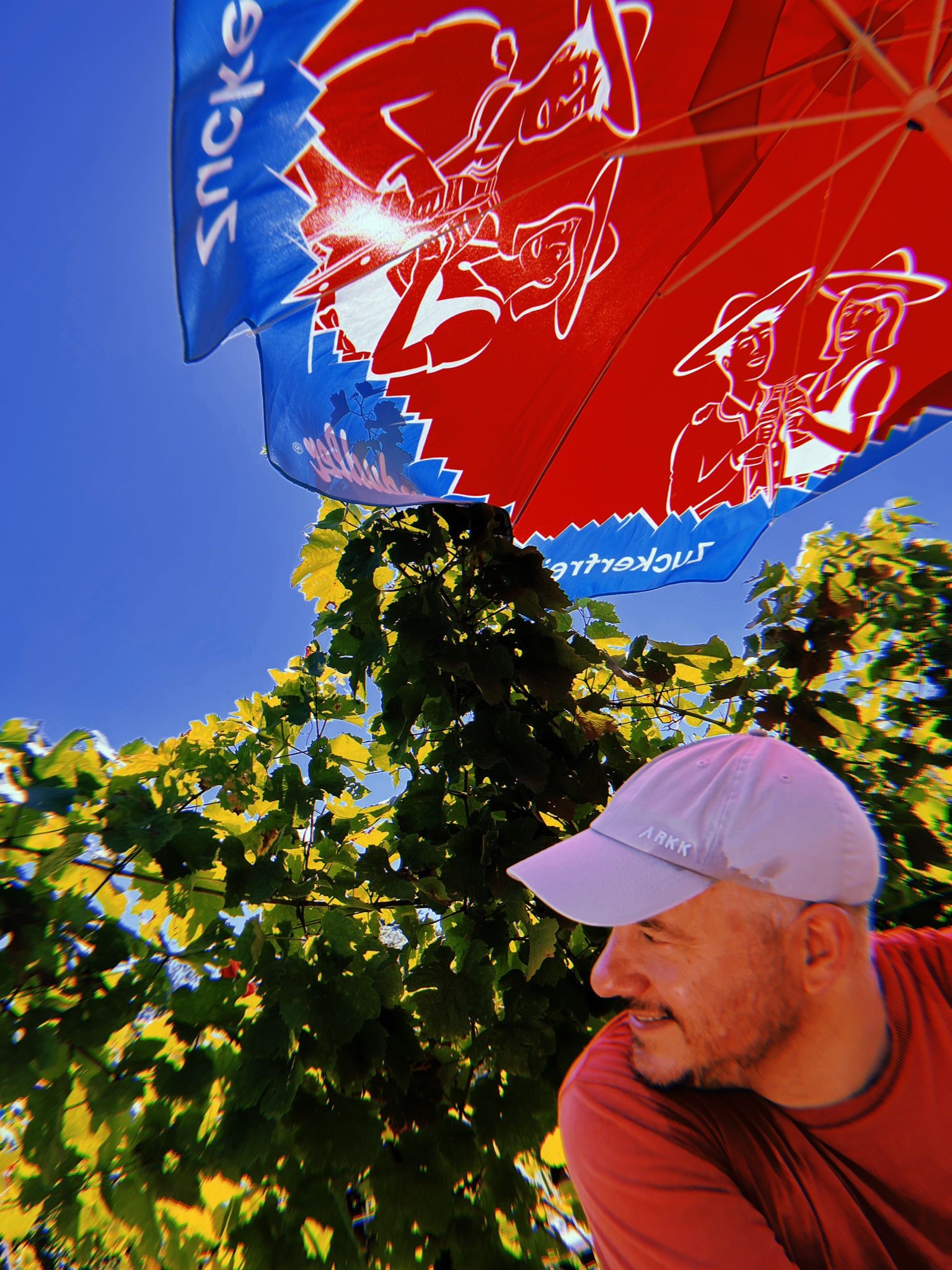 András Gerevich, a Hungarian poet, essayist and translator.He studied at Eötvös Lóránd University in Hungary, at Dartmouth College in the USA as a Fulbright scholar, and at the National Film and Television School in the UK, where he majored in screenwriting. He has been President of the Attila József Kör, the association for young writers in Hungary, visiting professor at Vassar College, New York, and has worked on a poetry program for BBC Radio. In addition to his five poetry books, he has worked on several theater plays and films. His poems, short stories, literary translations, reviews and essays appear regularly in Hungarian and foreign journals and anthologies. He translated a number of English-speaking poets into Hungarian, including Walt Whitman, Frank O’Hara, Seamus Heaney, and Louise Gluck. His work has been translated into over two dozen languages, including Czech and Slovak, in Polish they have been published in the journals Afront and Fabularie.
András Gerevich, a Hungarian poet, essayist and translator.He studied at Eötvös Lóránd University in Hungary, at Dartmouth College in the USA as a Fulbright scholar, and at the National Film and Television School in the UK, where he majored in screenwriting. He has been President of the Attila József Kör, the association for young writers in Hungary, visiting professor at Vassar College, New York, and has worked on a poetry program for BBC Radio. In addition to his five poetry books, he has worked on several theater plays and films. His poems, short stories, literary translations, reviews and essays appear regularly in Hungarian and foreign journals and anthologies. He translated a number of English-speaking poets into Hungarian, including Walt Whitman, Frank O’Hara, Seamus Heaney, and Louise Gluck. His work has been translated into over two dozen languages, including Czech and Slovak, in Polish they have been published in the journals Afront and Fabularie.
📚 Within the Visegrad Literary Residency at Villa Decius, András was working on a collection of queer-themed short stories based on his experiences growing up and living in Hungary. Stories about the silences of childhood, the traumas of compulsory heterosexuality and navigating through the anonymous underground of the queer community as a teenager. Stories about prejudice, conflicts, and the difficult emotional journeys of queer people.
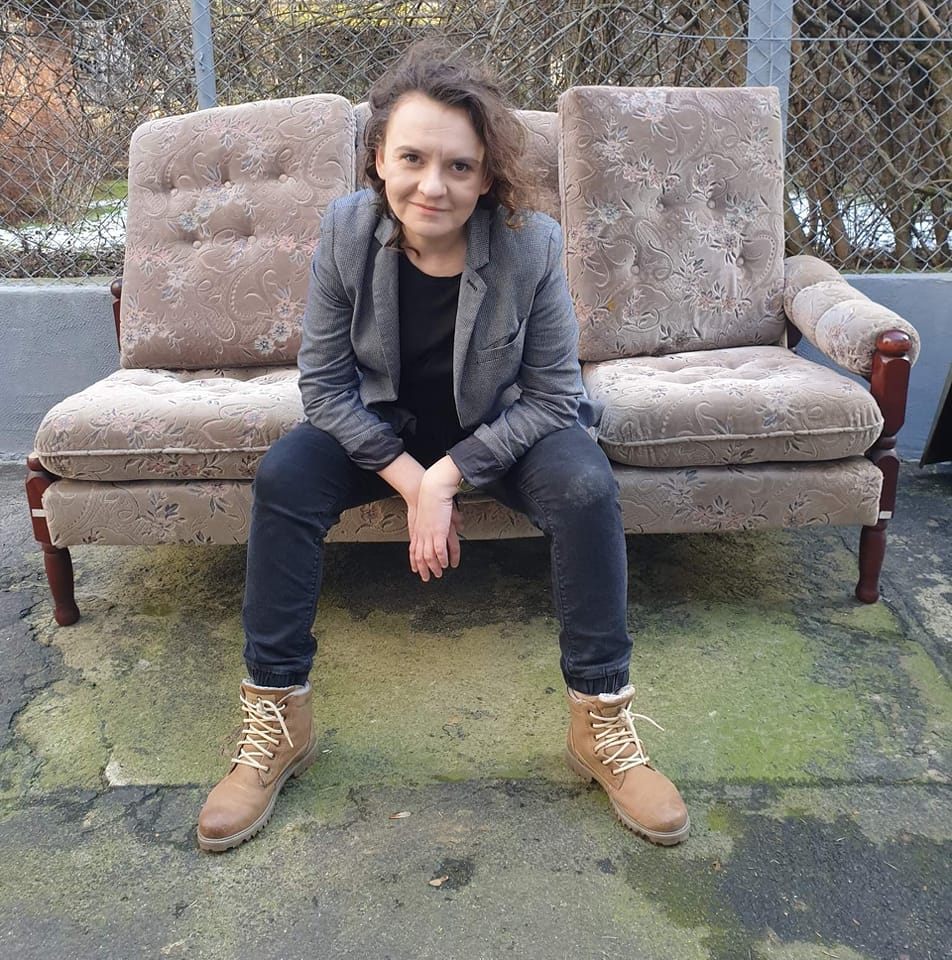 Olga Górska was born in a Radom, as she says about herself – she is a humanist by education and a proletarian by birth. As a child, she liked to play football (as a striker), watch “The Lion King” and go to church. In adulthood, she likes to sleep, watch old films and listen to music from the 60s. Winner of the 3rd edition of the Krakow UNESCO City of Literature Award and the Radom Literary Award.
Olga Górska was born in a Radom, as she says about herself – she is a humanist by education and a proletarian by birth. As a child, she liked to play football (as a striker), watch “The Lion King” and go to church. In adulthood, she likes to sleep, watch old films and listen to music from the 60s. Winner of the 3rd edition of the Krakow UNESCO City of Literature Award and the Radom Literary Award.
Author of the novel “Not all of us will go to paradise” published by Drzazgi in 2022. In 2023, the premiere of a play based on the novel directed by Karolina Szczypek took place at the Żeromski Theatre in Kielce.
During the residency, she was working on a contemporary novel under the working title “Ode to Dyson”, where she deconstructs the myth of the American dream, which has only seemingly been dead for a long time. The heroine of the novel goes to New Jersey because, like Krzysztof Krawczyk, a Polish singer, she plans to travel the whole world, from Las Vegas to Crimea.
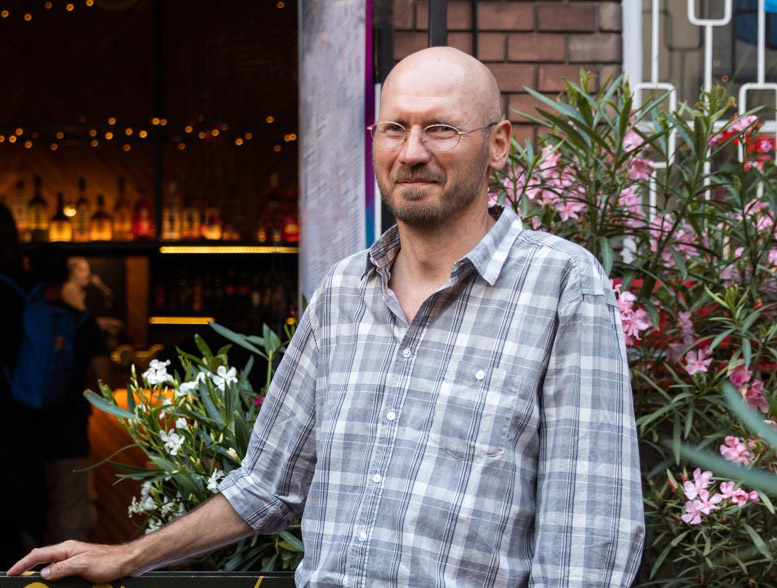 Maroš Volovár studied Art History at Comenius University in Bratislava. In 2010 he established The East-Slovak Association VALAL to revive the cultural connection with the small Ruthenian diaspora in Vojvodina, who left today’s eastern Slovakia in the 18th century. At the moment he translates their key literary works to Slovak and Czech, and fight for their publication in other Central European countries too.
Maroš Volovár studied Art History at Comenius University in Bratislava. In 2010 he established The East-Slovak Association VALAL to revive the cultural connection with the small Ruthenian diaspora in Vojvodina, who left today’s eastern Slovakia in the 18th century. At the moment he translates their key literary works to Slovak and Czech, and fight for their publication in other Central European countries too.
📚 During his stay at Villa Decius, Maroš Volovár works on translatation of the poems of selected Ruthenian poets into Slovak. Two of them, Natalija Dudaš (*1958) and Zvonimir Ňaradi (1966–1993), represent the best of late Yugoslavian literary new wave, but they are unknown outside the diaspora. The third one, Ivan Medeši (*1982), came to be known thanks to his “rough” book of short stories Jedenie (Eating), which won the prestigious Slovak Anasoft Litera Award in 2019, but he is also a poet, and his recent poetry waits for the translation.

